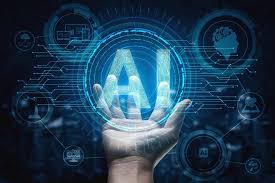Artificial Intelligence (AI) has changed into a buzzword in today’s technical-motivated community, but precisely what is it? At its key, Artificial Intelligence (umela inteligence) means the simulation of human being intelligence procedures by machines, typically personal computer solutions. These processes involve discovering (the investment of data and regulations for utilizing it), thinking (making use of regulations to reach estimated or definite conclusions), and personal-correction.
artificial intelligence (umela inteligence) is not a new principle, but latest advancements in computing potential and algorithms have propelled it in the spotlight. There are two major types of AI: filter AI and basic AI. Narrow AI, also referred to as fragile AI, was designed to execute a certain task, such as face reputation or language translation. General AI, or robust AI, is hypothetical and describes AI having the ability to understand, understand, and use understanding across diverse internet domain names, much like human intelligence.
Machine discovering, a subset of AI, performs an important role in empowering personal computers to find out from details without being explicitly programmed. Serious studying, a specialised form of machine studying, entails neural sites with lots of tiers, letting them learn from huge amounts of information. These systems potential a variety of AI programs, from digital assistants like Siri and Alexa to autonomous cars and healthcare prognosis methods.
Regardless of its possible rewards, AI also boosts moral and social worries. Troubles including job displacement due to automation, biased techniques, and privacy infractions have sparked arguments throughout the world. As AI will continue to change, it’s necessary to street address these problems whilst utilizing its transformative potential for the enhancement of society.
